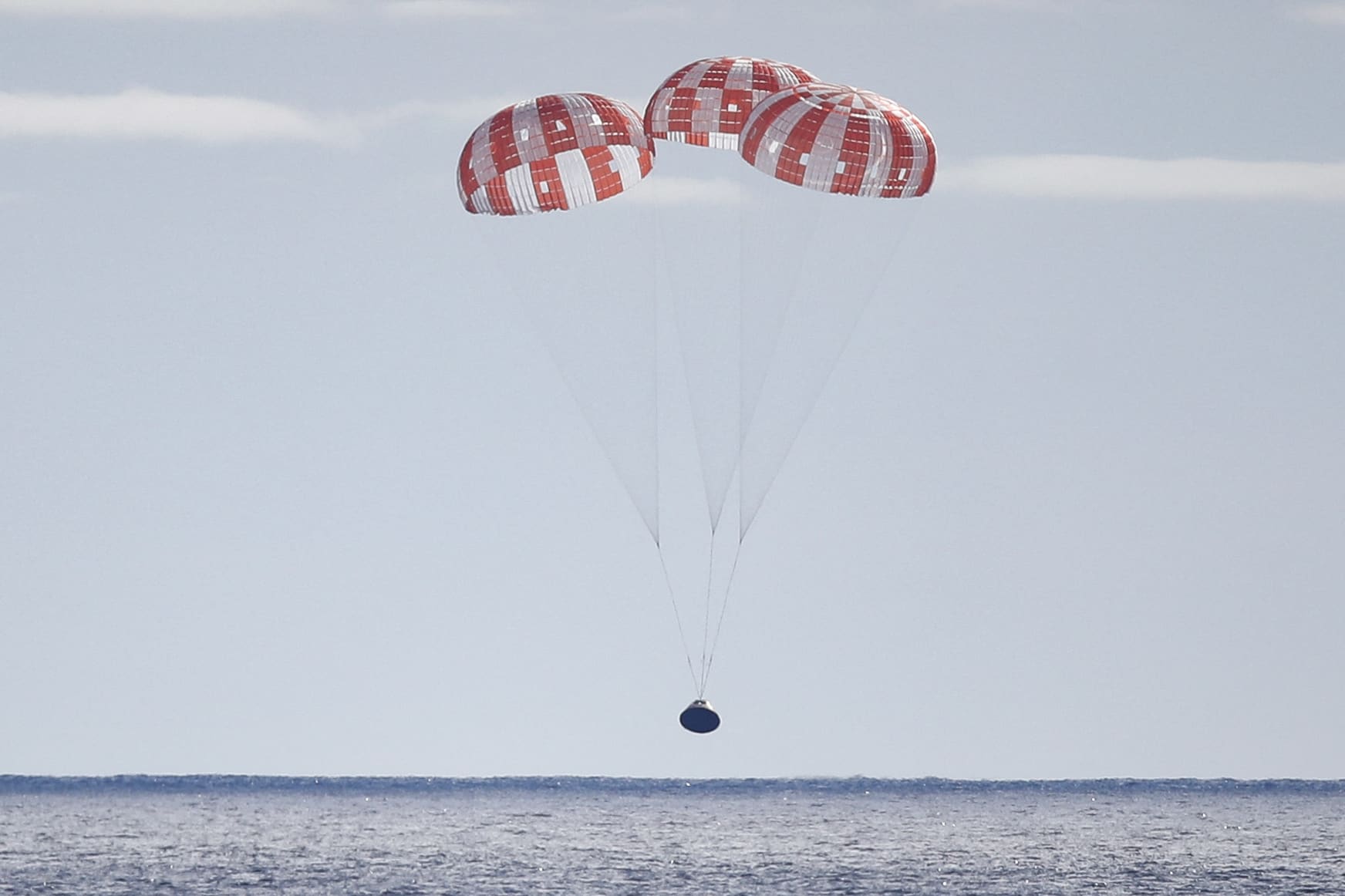NASA's Artemis I moon mission concludes with ocean splashdown


A free daily email with the biggest news stories of the day – and the best features from TheWeek.com
You are now subscribed
Your newsletter sign-up was successful
NASA's Artemis I moon mission came to an end on Sunday when it splashed down successfully, CNN reported, closing the book on the first chapter of mankind's eventual return to the lunar surface.
Artemis I concluded with the mission's unmanned Orion capsule plunging into the waters of the Pacific Ocean at approximately 12:40 p.m. off the coast of Mexico's Baja California. The capsule made quite the entrance back home, entering the atmosphere at approximately Mach 32 — 32 times the speed of sound, The Associated Press reported.
The Orion capsule had traveled more than 239,000 miles between the moon and Earth, and made its closest flyby of the lunar surface at an altitude of just 79 miles. However, while the rest of the mission had been a success, the splashdown was notably the most dangerous and untested part of Artemis I. Luckily, it too proved to be smooth sailing, with NASA Administrator Bill Nelson telling reporters, "This is an extraordinary day."
The Week
Escape your echo chamber. Get the facts behind the news, plus analysis from multiple perspectives.

Sign up for The Week's Free Newsletters
From our morning news briefing to a weekly Good News Newsletter, get the best of The Week delivered directly to your inbox.
From our morning news briefing to a weekly Good News Newsletter, get the best of The Week delivered directly to your inbox.
The entire goal of the Artemis I mission was to ensure that the spacecraft is prepared to fly actual astronauts when the time comes. Despite this mission being unmanned, Nelson had previously stressed the importance of Artemis I in determining whether the Orion capsule would be able to successfully bring humans to the moon.
Artemis I also made sure to leave a mark on history, as the mission's splash down occurred 50 years to the day after Apollo 17, the final Apollo mission, became the last expedition to land astronauts on the moon.
A free daily email with the biggest news stories of the day – and the best features from TheWeek.com
Justin Klawans has worked as a staff writer at The Week since 2022. He began his career covering local news before joining Newsweek as a breaking news reporter, where he wrote about politics, national and global affairs, business, crime, sports, film, television and other news. Justin has also freelanced for outlets including Collider and United Press International.
